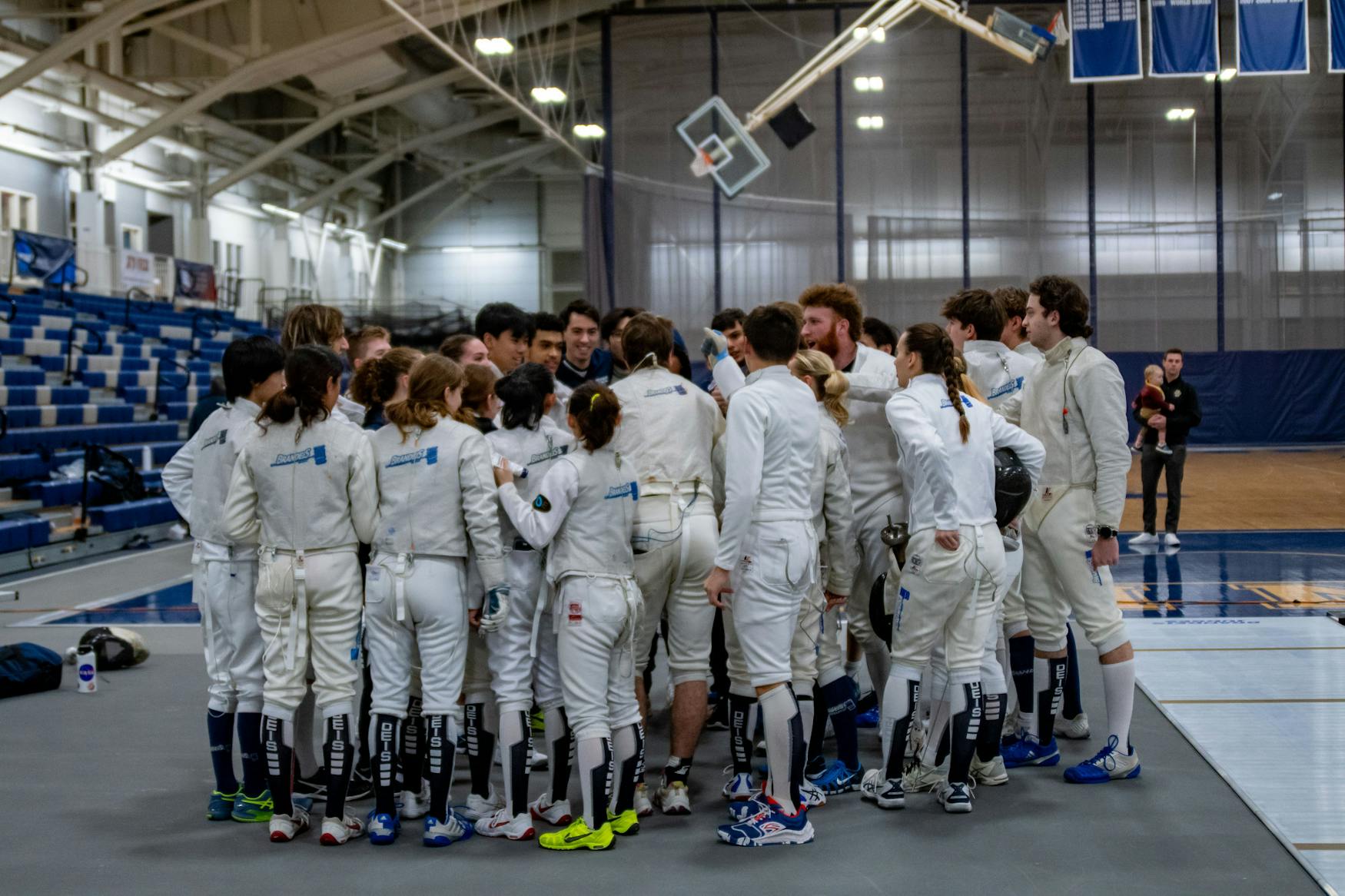New year, new recruits for Brandeis Athletics
A look in side the Division III recruiting process.
Every year, over half a million student-athletes compete across over one thousand colleges, per the National Collegiate Athletics Association. Every year, each of Brandeis’ 19 sports teams seek to answer one main question for their prospective recruits: what makes Brandeis University special?
Brandeis is a Division III school in the University Athletics Association conference. Brandeis’ Division III designation is due to our relatively small enrollment size and athletics spending. As a Division III school, the University is subject to certain restrictions, such as not being able to use endowment spending solely for athletics. Still, coaches and staff at Brandeis Athletics believe they have just as much, if not more to offer than any other school.
Academic choice is a consistent theme in many recruiting pitches. “In some schools, you can’t come to play sports and be pre-med,” Brandeis Fencing Head Coach Elif Soyer Sachs told The Justice. “But here, I tell my recruits, we have people on our team with double majors, minors, Dean's List, from a diverse background, from Biology and Theater to Anthropology and Business. You really can do it all and compete.”
Having teammates with overlapping academic interests can help in the transition period as new students get used to campus. This is especially important given the restrictions on team activities. Rules strictly police what types of activities can and cannot happen during the offseason, and Brandeis coaches are very limited in their ability to contact students until their deposit has been paid.
“If one of them has a question,” Coach Sachs joked, “be it choosing classes or how to pick a meal plan, I always tell them, ‘Hey, I don’t go to school here,’ and I put them in contact with one of the kids on the team. That’s how I sort of get us all acquainted before the season starts.”
Diversity beyond just academics represents another pull to the Brandeis campus for coaches. “We have two new recruits: one from Puerto Rico and one from Madrid, Spain,” Brandeis Volleyball Head Coach Alesia Bennett told The Justice. The ability to recruit internationally provides more players the opportunity to get a college education at Brandeis and allows for stronger and more diverse teams.
Some new recruits aren’t even first years. Three of the five new members of the men’s basketball team are transfers, per Brandeis Athletics. Bringing in talent that already has experience at the collegiate level can boost a team’s ability to compete right away.
Regardless of where recruits come from, it all starts with the first contact. Every team has a recruiting form that interested students can fill out. Coaches also scout at national events and college fairs. While teams are prohibited from contacting student athletes until their junior or senior year, depending on the sport, students of all ages are permitted to reach out to Brandeis coaches on their own volition.
Brandeis uses an industry tool called Front Rush to view recruiting profiles, but alongside their high school or club level stats, coaches look at resumes, medical information and a recruit’s entire athletic history.
Just as important as their ability to compete, is their attitude while doing it.
“The reason I scout competitions, for instance,” Coach Sachs explained, “is to see, when you lose, are you screaming at your coach? Are you pouting? When something doesn’t go your way, I want you to want to win, but I need to see how you react when you lose.”
At some point, recruits might be offered an official visit, where they get to eat in the dining hall, sleep in the dorms and even attend classes. The University is allowed to provide one visit per recruit; additional visits have to be paid for by the recruits themselves. Visits are an important part of the recruiting process for many teams, but due to how difficult they can be to schedule, especially around NCAA rules, some coaches do not offer them.
According to Coach Sachs, a potential new rule concerning visits was recently shared with Brandeis Athletics coaching staff, though she could not confirm where the rule came from. The proposed change would require teams to pay out-of-pocket for a background check for the student hosting the visit. The associated cost and time investment has pushed some coaches to consider doing away with visits altogether.
But above all else, there’s one challenge that can sometimes be too big to overcome – Division III schools, per NCAA bylaws, are not allowed to offer athletic scholarships. Coach Sachs shared an example of a fencing recruit: “She loved the school, she loved us, but if some- one like [The Pennsylvania State University] offers you a full ride, it gets a little difficult.”
Still, Brandeis Athletics is able to make the case that the school is special. Maybe it is the athletics, the extracurriculars, the coaches, the people or the location, but unmistakable is the enthusiasm the entire department has to help 19 sports welcome new talent to bolster Brandeis Athletics. Up and down the halls of the Brandeis Athletics staff offices are people excited to talk about the new year and new recruits — even the staff who have nothing to do with the process.
“It’s the one thing I stress all the time,” Coach Sachs mused. “Everyone in this building wants to see you succeed when you walk through those doors."



Please note All comments are eligible for publication in The Justice.